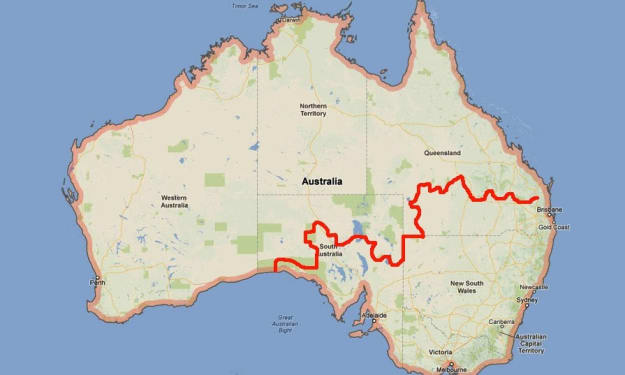
Ebola, one of the deadliest viruses known to humanity, has a high mortality rate, killing approximately half of those infected if left untreated. It spreads through various bodily fluids, including blood and sweat. Surprisingly, even the deceased can transmit the disease, often during funerals. The largest Ebola epidemic in history occurred between 2013 and 2016, originating from a two-year-old boy in southern Guinea. The international community and local doctors took four months to identify Ebola as the cause, primarily because it had never been detected outside of Central Africa. The outbreak resulted in over 28,000 cases and more than 11,000 deaths.
During that epidemic, Guinea lacked proper emergency response systems, contact tracers, rapid tests, border screenings, and an Ebola vaccine. However, after the epidemic, Guinea underwent a comprehensive overhaul of its epidemic response system, with support from the US and other international partners. In January 2021, Guinea faced its first real test when a nurse displayed symptoms of Ebola and subsequently died. This time, health officials quickly suspected Ebola, ordered tests, and activated the epidemic alert system. Guinea swiftly took several measures to contain the outbreak, including the activation of emergency operations centers, contact tracing, rapid testing, border screenings, vaccination campaigns, and community mobilization to promote safer burial practices. Thanks to these efforts, the 2021 outbreak ended within four months, with only 23 cases and 12 deaths, a significant improvement compared to the previous epidemic.
While Guinea's approach was successful, it's important to note that each country's response to an outbreak may differ depending on the disease and its characteristics. For instance, Brazil effectively controlled a yellow fever outbreak through a massive vaccination campaign due to its vaccine production capacity and a population familiar with routine vaccinations. In Burkina Faso, a cholera outbreak was swiftly halted by providing antibiotics to exposed individuals, highlighting the importance of tailored responses for different diseases. Additionally, Chiang Mai, Thailand, implemented a community-driven outbreak alert system to monitor animal health, recognizing the potential spillover of animal outbreaks into human populations.
To have an effective outbreak response, it is crucial to establish trust, value community involvement, and consider local culture, language, beliefs, and practices. Furthermore, investing in robust and sustainable health infrastructure throughout the year, particularly for vulnerable populations, is vital for saving lives. Taking proactive measures and maintaining a continuous focus on healthcare are key components of a comprehensive strategy to combat outbreaks effectively.
Ebola, one of the deadliest viruses known to humanity, has a high mortality rate, killing approximately half of those infected if left untreated. It spreads through various bodily fluids, including blood and sweat. Surprisingly, even the deceased can transmit the disease, often during funerals. The largest Ebola epidemic in history occurred between 2013 and 2016, originating from a two-year-old boy in southern Guinea. The international community and local doctors took four months to identify Ebola as the cause, primarily because it had never been detected outside of Central Africa. The outbreak resulted in over 28,000 cases and more than 11,000 deaths.
During that epidemic, Guinea lacked proper emergency response systems, contact tracers, rapid tests, border screenings, and an Ebola vaccine. However, after the epidemic, Guinea underwent a comprehensive overhaul of its epidemic response system, with support from the US and other international partners. In January 2021, Guinea faced its first real test when a nurse displayed symptoms of Ebola and subsequently died. This time, health officials quickly suspected Ebola, ordered tests, and activated the epidemic alert system. Guinea swiftly took several measures to contain the outbreak, including the activation of emergency operations centers, contact tracing, rapid testing, border screenings, vaccination campaigns, and community mobilization to promote safer burial practices. Thanks to these efforts, the 2021 outbreak ended within four months, with only 23 cases and 12 deaths, a significant improvement compared to the previous epidemic.
While Guinea's approach was successful, it's important to note that each country's response to an outbreak may differ depending on the disease and its characteristics. For instance, Brazil effectively controlled a yellow fever outbreak through a massive vaccination campaign due to its vaccine production capacity and a population familiar with routine vaccinations. In Burkina Faso, a cholera outbreak was swiftly halted by providing antibiotics to exposed individuals, highlighting the importance of tailored responses for different diseases. Additionally, Chiang Mai, Thailand, implemented a community-driven outbreak alert system to monitor animal health, recognizing the potential spillover of animal outbreaks into human populations.
To have an effective outbreak response, it is crucial to establish trust, value community involvement, and consider local culture, language, beliefs, and practices. Furthermore, investing in robust and sustainable health infrastructure throughout the year, particularly for vulnerable populations, is vital for saving lives. Taking proactive measures and maintaining a continuous focus on healthcare are key components of a comprehensive strategy to combat outbreaks effectively.





Comments
MarcosO is not accepting comments at the moment
Want to show your support? Send them a one-off tip.